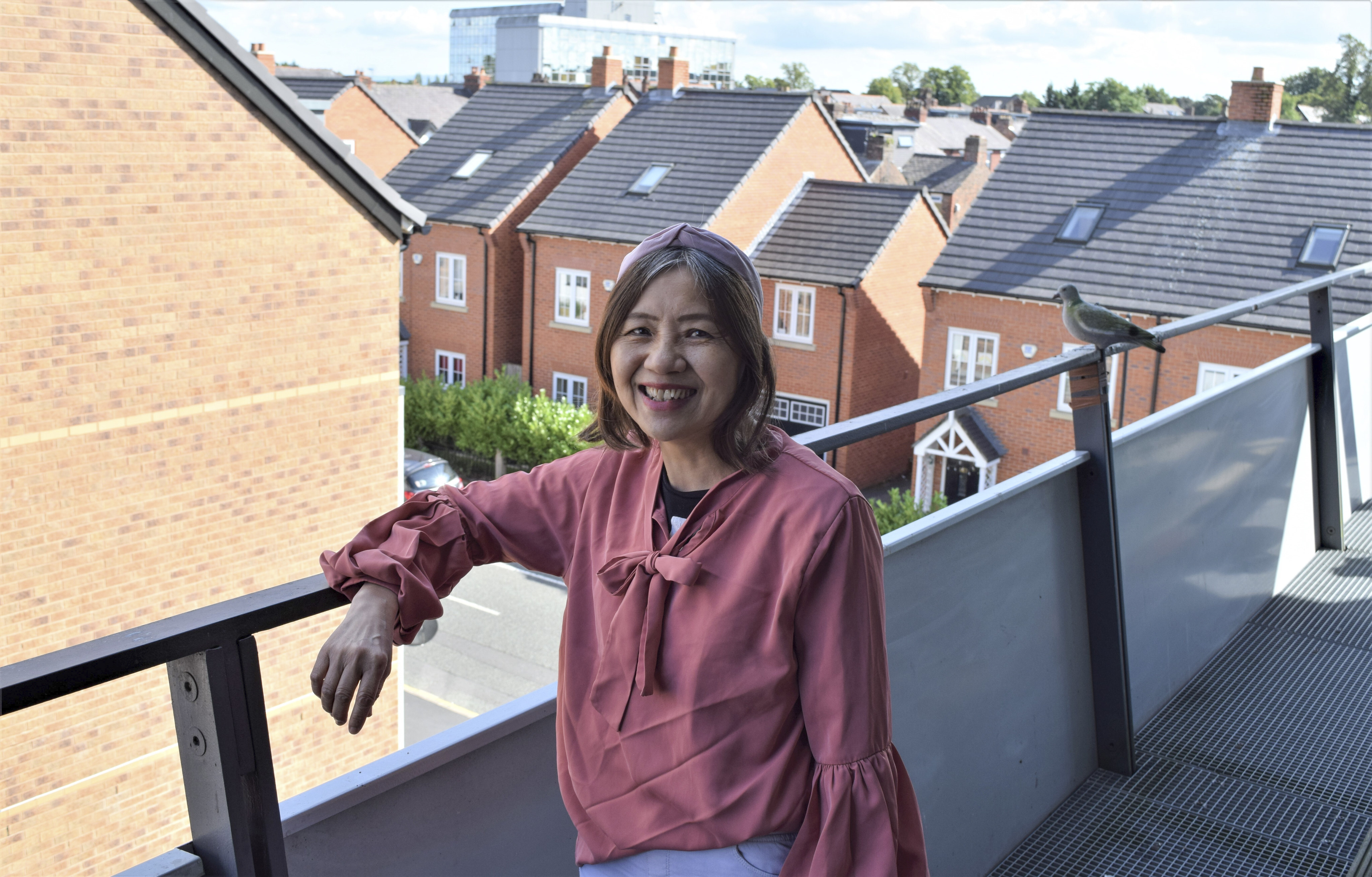
- Recently arrived Hong Kong migrants talk about getting to grips with life in the UK, what the future may hold and and all they have left behind
Sarah Kong Siu-kuen’s laughter echoes around her white-walled flat in a smart suburb of Manchester where, with unopened packing boxes still piled in corners, she describes the day a 30-minute journey turned into a cross-England tour.
Kong, who left Hong Kong in May with her son and daughter-in-law – both 25-year-old graduate accountants now looking for work and willing to switch careers if necessary – was staying in an Airbnb when they ventured out for their first train journey to inspect a house for sale in Crewe, four stops and 45km away.
Everything went smoothly until they switched into MTR mode as they tried to disembark. “We counted every station on the way from Manchester Piccadilly to Crewe,” she says with an embarrassed smile. “When we arrived, we got up and stood waiting for the doors to open – and they didn’t.
“After a few minutes, we started getting worried, but there was no one around to ask. It was only then that we noticed there was a button to press to open the door. But we were too late, and the train started moving again. Then there was an announcement saying the next station was London Euston.”
Panicked at the realisation that they were on a 2.5-hour, 260km detour, Kong dashed from coach to coach until she found the supervisor. “I told him what had happened. I said we were newcomers to Britain and didn’t know we had to press a button to open the doors. He was very kind and said, ‘Go back to your seat and enjoy the journey. When we’re approaching London, come and see me again.’
“When we got to Euston, he accompanied us to another platform, told staff what had happened, and asked them to let us on the train back to Manchester without any extra charge. I thanked him very much. It was an unforgettable experience, and everyone was very nice to us.”
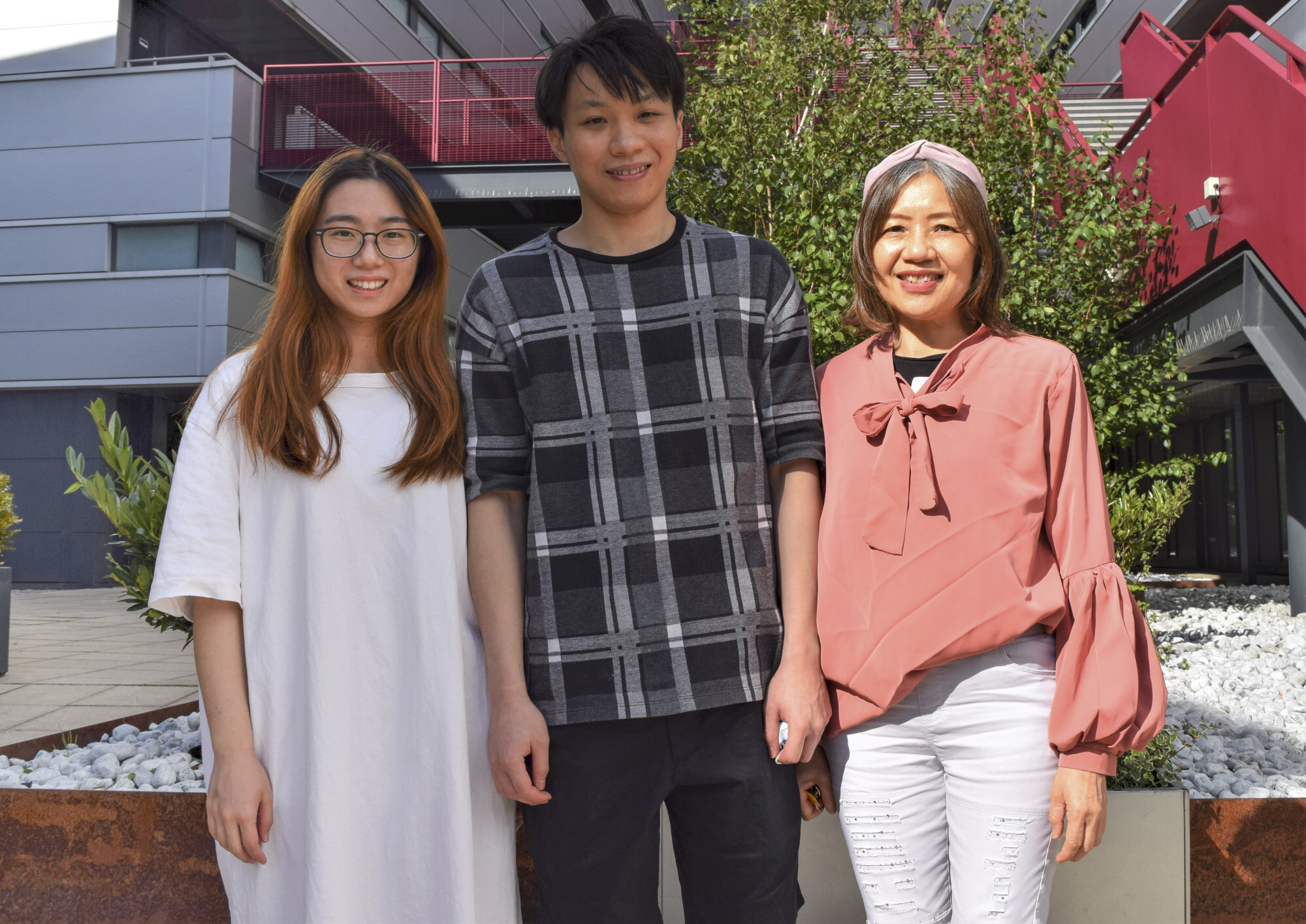
Mother-of-three Kong decided against settling in Crewe, instead choosing a £200,000 (HK$2.1 million) flat in a stylish gated development in the upmarket south Manchester suburb of Altrincham.
She liked it so much she bought two and is considering buying a third flat in the hope that other family members will follow her from Hong Kong to northwest England.
Set over three spacious floors and with a balcony overlooking a mix of new-build homes and residential blocks alongside older terraced streets, Kong’s new home seems a world away from the cramped quarters and bustling streets of Tin Shui Wai she left behind.
Nearly 65,000 Hongkongers have applied for BN(O) visa scheme so far
Meanwhile, junior school textbooks have been rewritten, assuring that patriotic sentiment is instilled into the city’s children.
The longer-term impact of the departure of so many middle-class families and Hong Kong professionals, who by definition require the resources to meet the expense of relocating overseas, remains to be seen.
Some of those who have taken the drastic step of leaving the city and settling in Britain, meanwhile, are still adjusting to disorienting and starkly alien environments where everyday acts of kindness and neighbourliness assume a disproportionate significance.
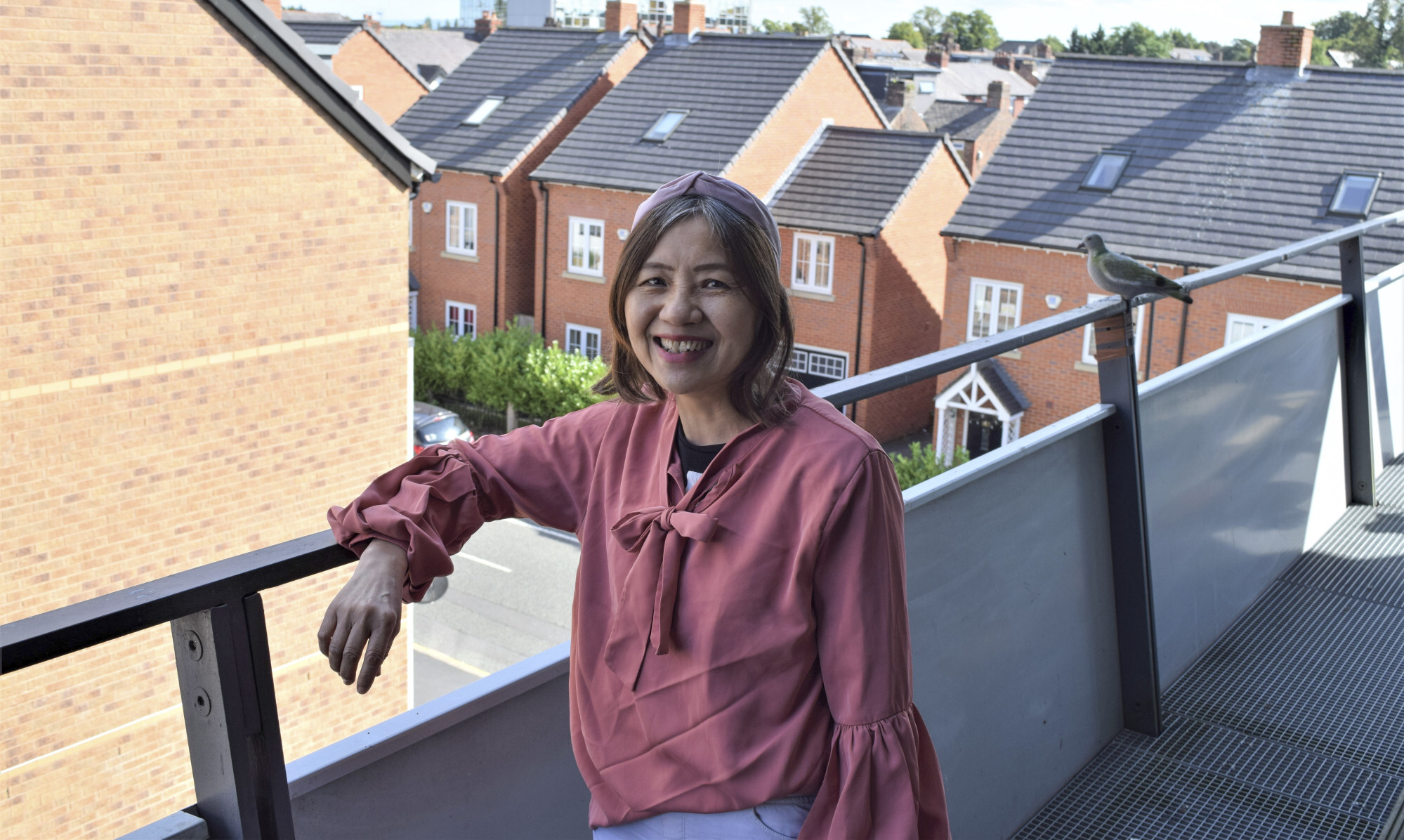
As Kong settles into a life in exile, she has found comforts in surprising places, even without venturing into Manchester’s Chinatown just 13km away. “I went to the Aldi supermarket around the corner and I found bak choi. They also have broccoli, and the spinach here is so much better than in Hong Kong,” she says brightly. “Meat here is cheaper than in Hong Kong, too, but the quality is better.”
The Kong family are among thousands who opted for bigger homes and more affordable lifestyles in northwest England rather than the traditional choices of London and the home counties surrounding the capital, and “the living costs here are not as high as I had expected”, says Kong.
Back home, Kong ran a trading business. She left her husband, who remained to care for his elderly mother, and grown-up daughters behind when she moved to the UK in May. Kong also left behind the young children she was devoted to as a Sunday School teacher at her local Catholic Church. Because of the deep divisions within Hong Kong, she felt unable to even tell them she was leaving when the time came.
“After the [national security] law was implemented in Hong Kong, everything changed absolutely. Almost every week there is something new that shocks us,” she says. “I taught at the Sunday School for 10 years and I really enjoyed it. I didn’t want to leave the children and I miss them very much. Even now, I feel sorry that I couldn’t tell them what I was doing.
“It isn’t Hong Kong any more, and nobody dares tell anyone when they decide to leave.”
My grandmother has no idea I have left. She is really old. Some of my aunties and uncles like the government so I didn’t tell them I was leaving to claim asylum. I said I was going to the UK to studyNatural Ngan, 19, asylum seeker
As Kong prepared to leave her city, one of her older Sunday School pupils asked her to be her godmother at her forthcoming Confirmation. “I had to tell her ‘I’m sorry I can’t do it’ but I couldn’t tell her why,” she says. “She is only 14 years old, but she replied to me ‘I hope everything will be good for you, no matter where you will be.’ She understood. She didn’t have to ask.”
Fion Ip, who moved to Altrincham with her husband, eight-year-old daughter and 11-year-old son, says, “I was in the park the other day teaching my daughter to ride a bicycle and a lady came over and encouraged my daughter, telling her ‘You can do it,’” she says. “That made a deep impression on me.”
Ip and her husband, who made advertising signs in Hong Kong, bought a house with a large garden for £320,000, which she says was much better value than she expected. “My children really like going to school here, too. There is less homework, tests, exams and pressure. They are able to relax and play at school as well as working hard.”
Concern over the introduction of patriotic education in Hong Kong and the effect on children’s schooling appears to have been a factor in the decisions of many families to leave the city.
A teaching assistant at an elite Kowloon primary school, who asked not to be identified, says in the 2020-2021 academic year, at least one child in each of the seven classes she dealt with had left or was preparing to leave.
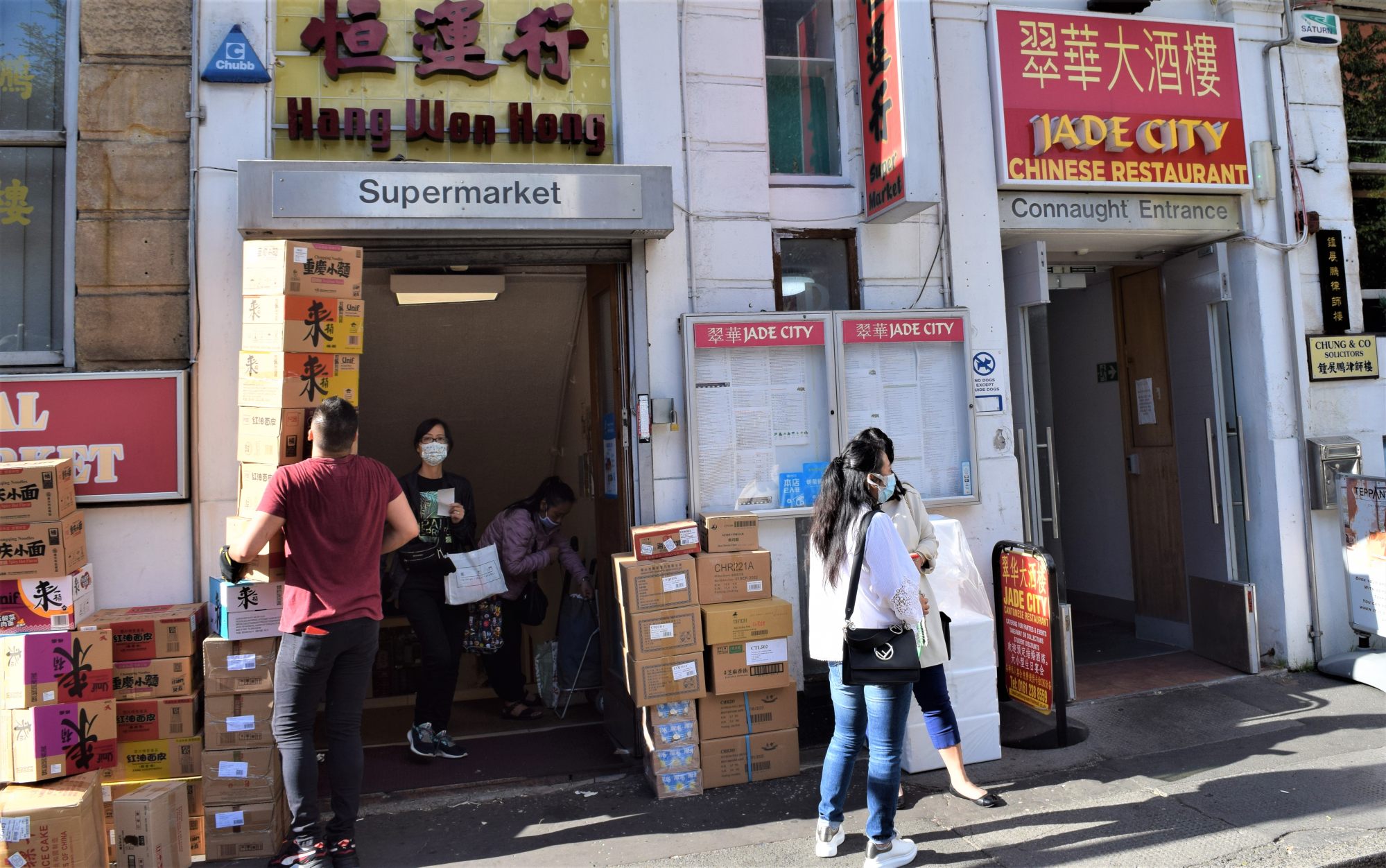
“At least four children left for the UK or Australia before the end of the school year,” the teaching assistant says. “One eight-year-old girl came up to me after class and whispered, ‘Miss, can I tell you a secret? We’re leaving for England.’ Another boy of six told a colleague of mine he was leaving Hong Kong with his family and told her, ‘My parents say it’s not safe here any more.’”
The new lives they are heading for are often in some of the UK’s most sought-after locations. Over the past 12 months, more than four in 10 buyers in the affluent south Manchester areas of Altrincham and Hale – popular for its grammar schools and low crime rates – have been from Hong Kong, according to property agents.
“I’ve never seen anything like it on this kind of timescale and in terms of this intensity of numbers,” says Amelia Harris-Lindsay, director at Jennie Platt Estate Agents. Business has been so brisk that Harris-Lindsay’s company has teamed up with Cantonese-speaking lawyers, surveyors and accountants to guide clients through the buying process.
“You can always tell if someone’s paying attention by the number of questions they ask,” says Richard Hamilton, head of property at Davis Blank Furniss solicitors, which has a specialised team of Mandarin- and Cantonese-speaking lawyers. “Hong Kong clients are very thorough.”

In an already hot market, affluent Hong Kong buyers face “immense competition” for homes in leafy suburbs priced between £800,000 and £1.5 million – the cost of a one- or two-bedroomed flat in fashionable London postcodes – with queues of up to 30 cash buyers for each property in sought-after areas such as Hale and Bowdon, according to Hamilton.
Hong Kong buyers are pragmatic, precise and decisive in their house-buying choices, always doing thorough research and often taking video tours before they even arrive in Britain, Harris-Lindsay says. In the context of the life-changing decisions they are taking, buying a property is often just a detail.
“Sometimes they seem a little weighed down by the enormity of what they are doing,” says Harris-Lindsay, who has found herself becoming a friend and mentor to a number of Hong Kong arrivals, stopping by for tea and chats and exchanging family news with them long after the purchases are completed.
It is usually the transition rather than the transaction that triggers emotion. “They are leaving mothers, fathers, brothers, sisters, aunts, uncles, nephews and nieces behind,” says Harris-Lindsay. “Buying a house isn’t the biggest part of that. It’s just a transaction. There’s no hesitancy and no doubt.”
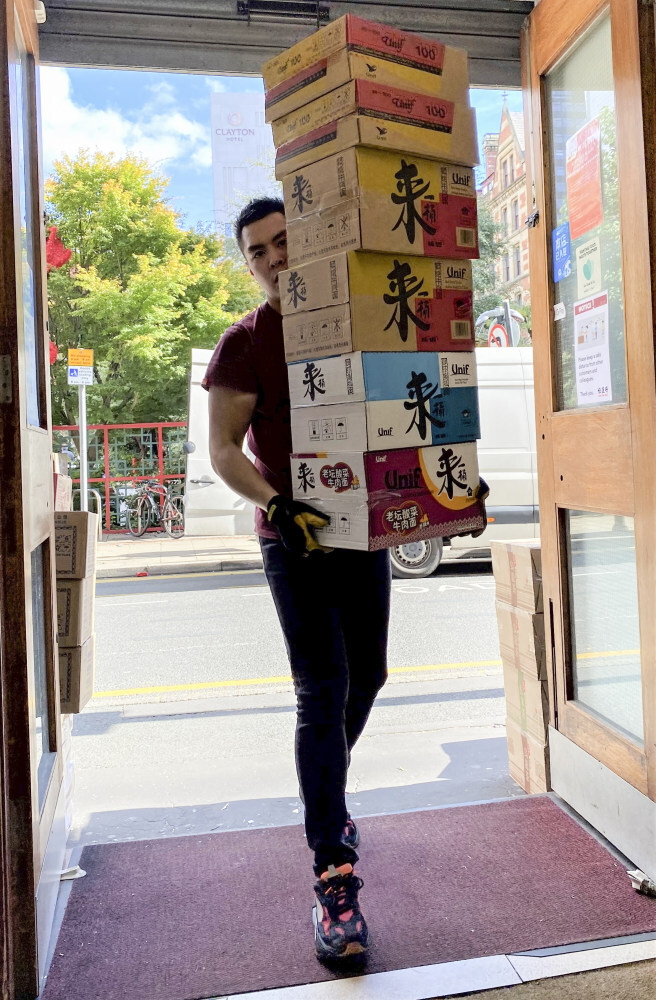
Despite the added pressure on prices, the reaction to Hong Kong buyers in the northwest appears to have been largely positive. “People in this area are educated and civilised and very welcoming to Hong Kong families,” she says. “They are settling in very well not only with other Hong Kong families but also with the wider community.”
However warm the welcome, though, there is no escaping the emotional impact of uprooting from family and friends and a city people have lived in all their lives.
“I came here so that my children can study in the UK and because I yearn for freedom,” says Ip. “I like living in the UK, but I dislike the weather and the expensive [public transport] fares. I also miss my mother and my father and Hong Kong food.”
The experience of 19-year-old Natural Ngan, who is living 160km south in Nottingham, in the British Midlands, after leaving Hong Kong at the end of June, is in sharp contrast to the relatively soft landings of families heading for comfortable homes in the northwest.
An activist who first took to the streets at the age of 13 during the 2014 “umbrella movement”, which sowed the seeds for the mass demonstrations that brought millions to the streets five years later, he was at the frontline of the 2019 protests and involved in a succession of bruising encounters with the police, losing teeth and narrowly avoiding arrest on three occasions. He is now in the process of applying for political asylum in the UK.
“If I had stayed, I would have been arrested,” says Ngan, who believes his Telegram account was hacked by Hong Kong police after he left for the UK during a period when other activists were being investigated and rounded up in their dozens. “You can imagine what kind of list I am on.”
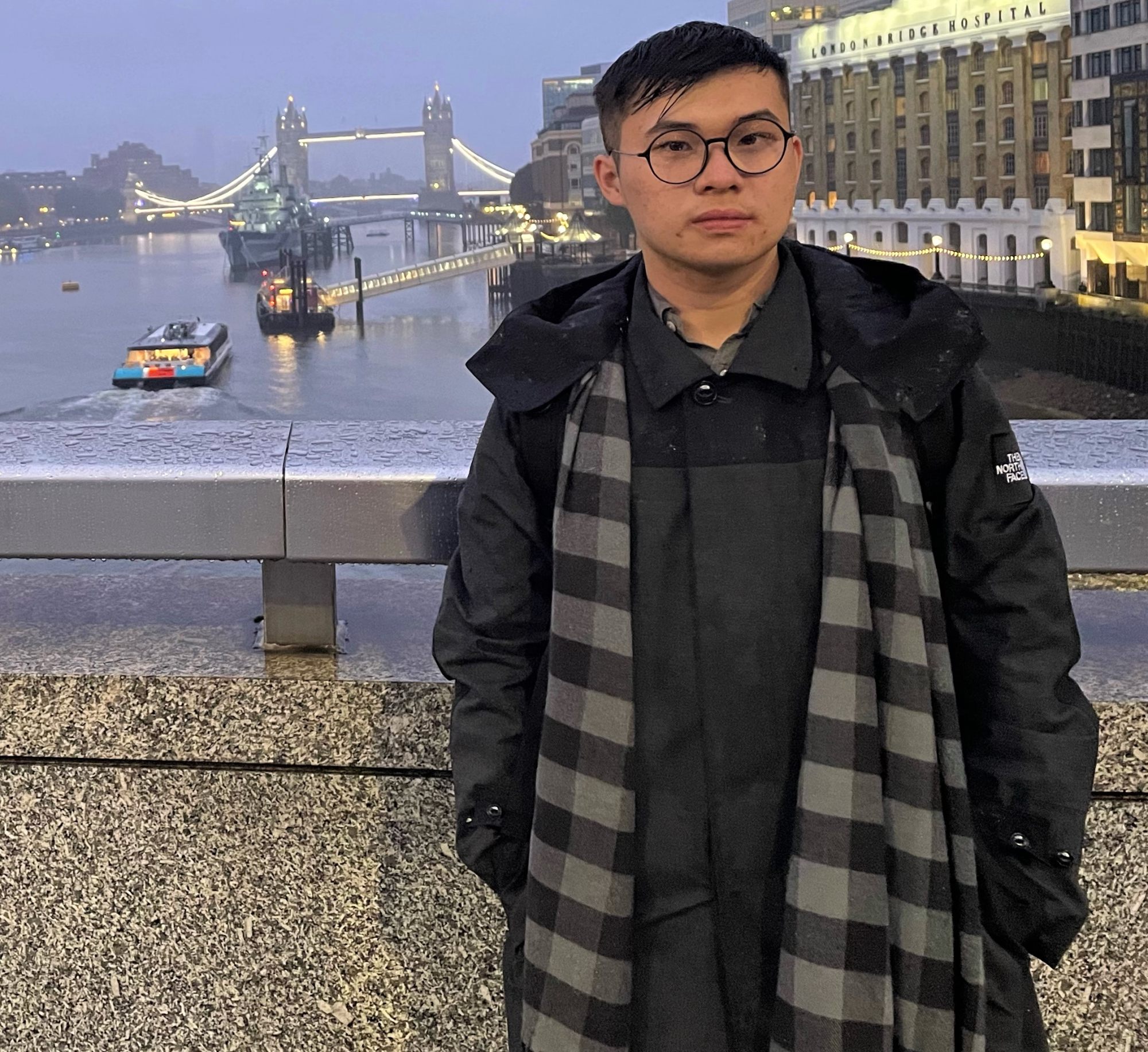
Ngan, an only child, says, “My grandmother has no idea I have left. She is really old. Some of my aunties and uncles like the government so I didn’t tell them I was leaving to claim asylum. I said I was going to the UK to study.
“My mum understands what I’m doing. My family don’t have a political stance and don’t even follow the news, but my mum will always support me. I only let my dad know two weeks before I left because I knew he would be really stressed and worried. He worries about me now and always says, ‘You can come back – I don’t think it will be dangerous or a huge problem.’”
Ngan is studying philosophy at the University of Nottingham as he waits for news on his asylum application. He remains engaged in Hong Kong politics by taking part in peaceful demonstrations in London, where he says police are more friendly marshals than adversaries. “In the UK, the police are not your enemies,” he says wryly.
Still passionate for the cause that consumed his teenage years, he is frustrated at the timidity of some of his fellow Hong Kong exiles and criticised them for failing to speak out and covering their faces for fear of being identified at protests in London.
“A lot of people are worried about their safety here but I am not,” says Ngan. “I feel I can now face everyone, including Chinese people. I don’t understand why people still need to be afraid. The UK is a really safe place and people here have freedom of speech. I never cover my face at protests here.
Australia opens door to Hongkongers with permanent residency scheme
“I want to help Hongkongers become part of society here. They still talk in Cantonese and use Cantonese slogans and sing Cantonese songs at protests, so people here don’t know what they are saying.
“Hong Kong people in the UK need to be more open-minded and reach out to locals more. They need to let people know they are coming to the UK but they are not coming here to take social benefits. We are going to be a positive part of UK society, like immigrants from India.”
As winter weather sweeps through Britain, there appears to be no let-up in the flow of Hong Kong migrants. When Terry Leung organised a barbecue for newcomers in a park in Highgate, north London, in late September, 90 people turned up – most of whom had arrived in the previous six to eight weeks.
“A lot of people made connections and felt more secure after meeting other Hongkongers and learning about other people’s stories and situations,” says Leung. “It was a special gathering for the Mid-Autumn Festival so it was particularly meaningful.
“A lot of them had never been to the UK before and didn’t know what to expect. Most were open-minded and trying to be flexible and happy, and to accept that things were going to be different. It wasn’t that everything was perfect. But they were optimistic about facing the challenges and happy with their decision so far.”
Leung, who moved to London more than 20 years ago, initially set up Justitia Hong Kong with a group of friends to support the Hong Kong protests and raise awareness about them in the UK. When the wave of migration began, they switched their focus to helping new arrivals settle in.
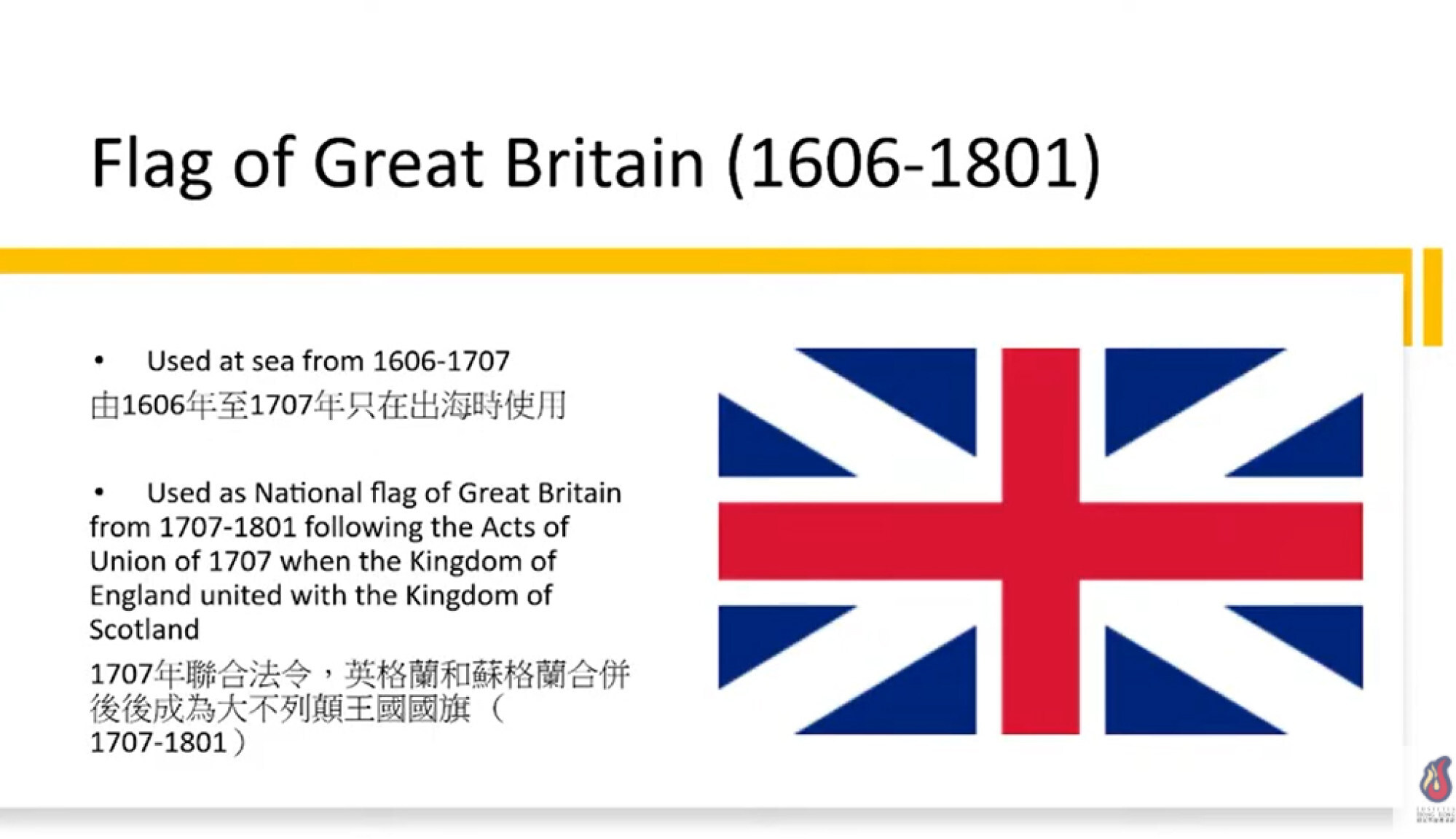
As well as barbecues and social gatherings, they organised a history webinar to teach new arrivals about British history and culture, covering everything from the Norman Conquest and the Battle of Waterloo to World War I and modern British society.
After being attacked online by a Manchester-based Chinese business association for supporting the Hong Kong protests, Justitia Hong Kong set up an online map to identify pro-China and pro-democracy Chinese businesses operating in the UK, similar to the yellow and blue maps popular in Hong Kong until the national security law came into effect.
The map, updated every month and carried on Justitia Hong Kong’s Facebook page, covers everything from restaurants and bookshops to barber salons, car washes, property agents and home renovation companies, although Leung admits the dividing line between so-called yellow and blue businesses is more blurred in the UK than in Hong Kong.
“The UK is a relatively more democratic and liberal society so there is not the same division and there are more grey areas,” he says. “The purpose of the map is to help us identify those who have a similar ideology to us so we can support each other, and identify the businesses and people who are hostile to us.”
Understandably, many Hong Kong people who move to Britain “want to leave everything behind and get on with their lives. Some people want to stay engaged,” says Leung. “Younger people tend to be more outgoing so I tend to meet more of them. People who come as a family unit tend to be more isolated because they need to look after their children and their children need to go to school, so they tend to be less able to go out to meet other people.”
However, it is the young people arriving alone who sometimes face the greatest challenges adapting. “In Hong Kong, it is quite common for young people to live with their parents so a lot of them have never lived independently before they arrive,” says Leung. “Even if they did live alone, they would meet with family and parents regularly. That is something a lot of them struggle to get used to.”
The challenges for Hongkongers arriving in Britain fall into three categories, Leung says: short-term problems such as finding employment, education, housing; mid-term problems such as establishing a social network, improving language skills and changing career where necessary; and long-term problems such as establishing their identity as Hong Kong people living in Britain.
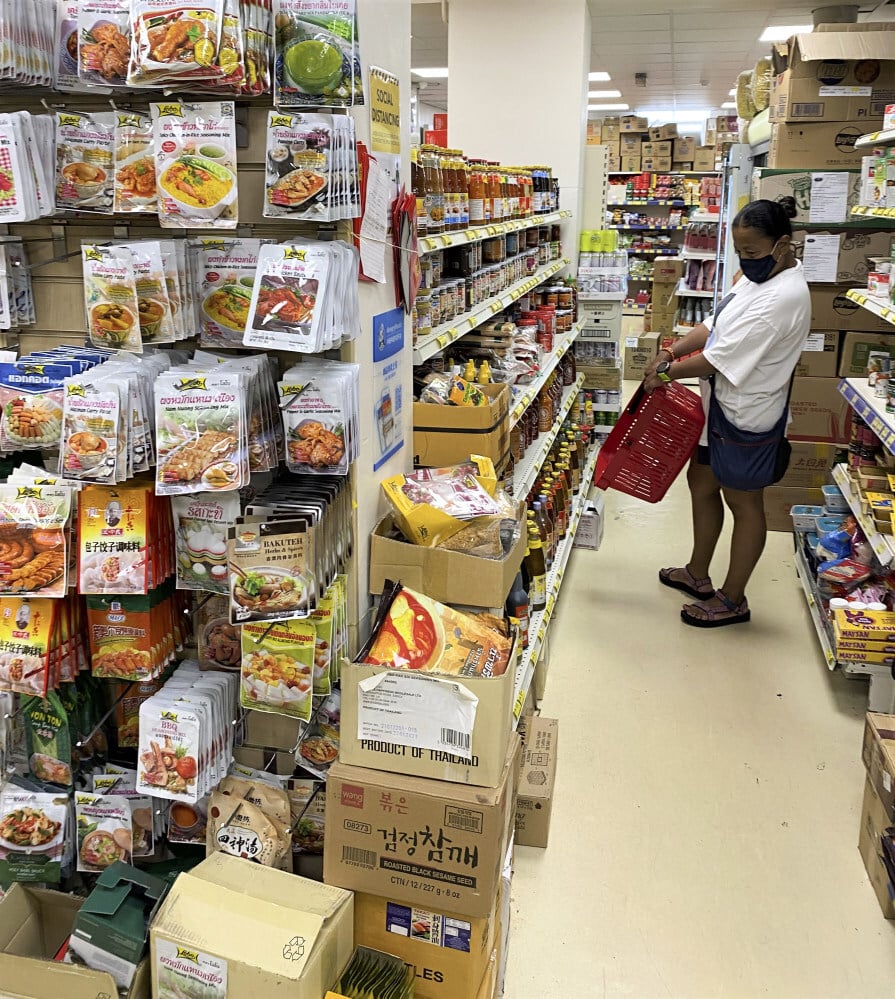
With those long-term problems in mind, Justitia Hong Kong is ambitiously campaigning for migrants to be formally recognised as Hongkongers on government websites and official documents in Britain. “They should be given an option to choose their nationality or ethnicity and many of them want to be called Hongkongers rather than just Chinese or ‘other Asian’,” says Leung.
Five months after moving to Britain and a fortnight after finally moving into her new home, Kong is already looking to the mid-term future and worrying about whether her family will be allowed to stay beyond the five years initially allowed under the British National (Overseas) entry scheme.
“International relationships are complicated, and we don’t know for sure what will happen,” Kong says. “We have invested everything here. When the five years are up, we will have three properties here. If they say we can’t live here any more, I don’t know what we will do.
“We have moved our entire lives here. There is a path [to citizenship] but it is not guaranteed. But we will do our best. We will live good lives here, we will find jobs, and we will do everything we can for society and for ourselves.”
With her family separated by nearly 10,000km, Kong admits adapting to life in Britain has not always been easy. “I have faced a very hard time without my husband,” says Kong. “We are newcomers here and everything to us is new. I have felt very lonely.
Culture shock a mental health challenge for some Hong Kong migrants in Britain
“I pray every day and God has given me power and support. I am better now because I have my home and I can begin a more normal life. I will search for a Catholic Church nearby and get to know more people.”
Just before we met, there was a sign that some of her prayers at least may be answered. “When I went out onto my balcony the other day, I heard the people in the apartment next door, and they were speaking Cantonese,” she says, brimming with optimism.
“Maybe they are from Hong Kong and in the same position as me, without many friends. One day soon, I will knock on their door.”

